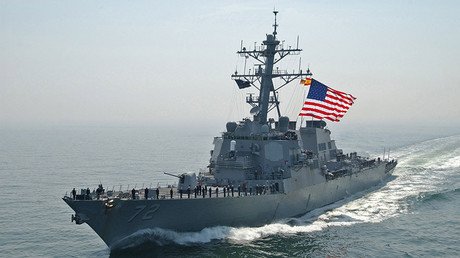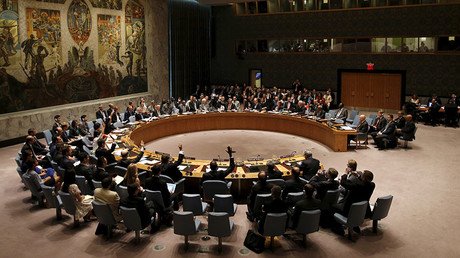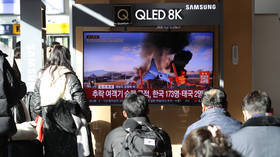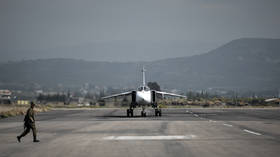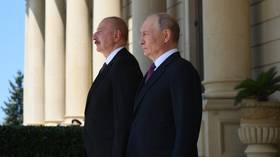Iranian MPs vote to boost military spending, develop missile capabilities
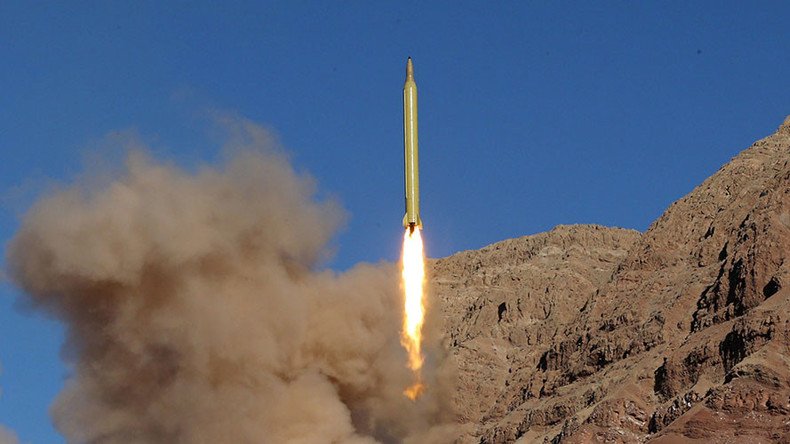
Iranian lawmakers have approved raising military spending to 5 percent of the state’s budget with a special focus on developing missile systems, local media report. The move may increase tensions with US President-elect Donald Trump’s new administration.
In a session Monday, 173 parliamentarians voted in favor of the bill, with 10 voting against and six abstentions. The law, which is part of Iran’s Sixth Economic Development Plan, will boost the capabilities of both the conventional armed forces and the Islamic Revolutionary Guard Corps (IRGC), with a particular focus on missiles, drone systems and cyber warfare. Previously, the military had only been allocated 2 percent of the budget.
According to Tasnim News Agency, the Iranian government is required to take “fundamental measures” to ensure the country’s national security, including “developing and increasing the power to produce missiles,”“developing and strengthening the air defense power within short, medium and long ranges,” and “developing and strengthening electronic warfare and cyber defense capabilities.”
"Our missile, electronic tapping and radar systems have multi-folded and we can confront the modern threats of the world," the commander of the Khatam ol-Anbia Air Defense Base, Brigadier-General Farzad Esmayeeli, told reporters in late December.
The Iranian government is also due to work on improving aerial and naval forces, equipping them with the latest weapons and vehicles, as well as refining the capabilities of combat and rapid reaction units.
Ballistic test launches carried out last year were criticized by then-UN Secretary-General Ban Ki-moon, who said they were not in the spirit of Iran’s nuclear accords, signed in 2015 under the JCPOA [the Joint Comprehensive Plan of Action] agreement.
Ban Ki-moon’s report came under fire from Russia, Iran and the US.
According to the deal between Tehran and six major world powers, including the US, Iran agreed to reduce the number of its centrifuges by two-thirds, cap its uranium enrichment below the level needed for bomb-grade material, reduce its enriched uranium stockpile from around 10,000kg to 300kg for 15 years, and agreed to international inspections. In response, Western countries agreed to lift international sanctions.
Iran’s missile program has come under scrutiny from US President-elect Donald Trump, who has described it as a threat to America and its allies.
"Those ballistic missiles, with a range of 1,250 miles, were designed to intimidate not only Israel ... but also intended to frighten Europe and someday maybe hit even the United States," he told an Israeli lobby group during his campaign last year. "We're not going to let that happen."
Trump has previously described the Iran nuclear deal as a “disaster” and “the worst deal ever negotiated.”
However, the Iranian authorities have countered these criticisms by saying they are not trying to develop nuclear-capable missiles. Supreme Leader Ayatollah Ali Khamenei has backed the JCPOA deal in exchange for a lifting of sanctions, but has been wary of further rapprochement with the West.
Despite the lifting of sanctions, US lawmakers voted to extend the Iran Sanctions Act (ISA) for another 10 years, allowing the president to renew penalties on Tehran if it violates the JCPOA agreement. In response, Iranian President Hassan Rouhani has ordered the development of nuclear propulsion systems for Iran’s submarine fleet, citing the US “violation” of the nuclear deal with Iran.
Iran has consistently maintained that its nuclear program is peaceful and its military purely defensive.
